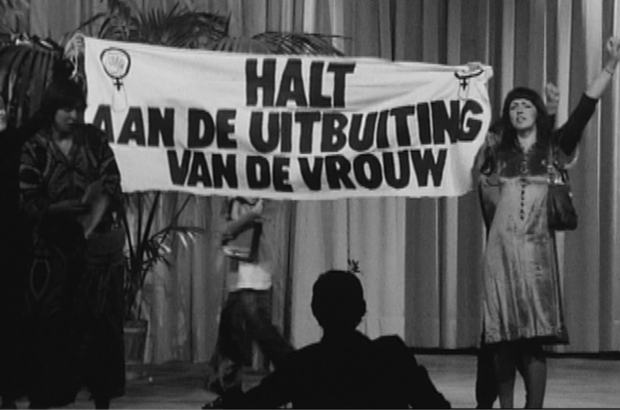- Daily & Weekly newsletters
- Buy & download The Bulletin
- Comment on our articles
3 best protests in Belgian history
Amid weeks of protests, strikes and rebellion throughout the country, largely in response to the Michel I government’s unpopular austerity measures, here’s a look at the three greatest protests in Belgium’s long, proud history of revolt.
Belgian revolution – 1830-1831
Perhaps the ultimate Belgian protest was the one that led to the formation of Belgium itself – the 1830 revolution that formed the country as we know it today.
The story begins, as any good story should, with a night at the opera. On the night of 25 August, 1830, Daniel Auber's opera La Muette de Portici (The Mute Girl of Portici) was playing at La Monnaie opera house in the centre of Brussels in honour of the birthday of William I, the current king of the Netherlands of which Belgium was then a part.
In hindsight, William I should have known the opera was a poor choice, as Auber’s work had already fuelled the fervour of the French revolutionaries who overthrew the Bourbon monarchy in France just one month before. The tale tells the story of a poor fisherman in Naples who starts an uprising against his Spanish rulers.
Catholic Belgium at the time was discontent with its Protestant Dutch ruler, and the patriotic duet entitled Sacred love of the Fatherland moved the Brussels audience so powerfully that they began to pour out into the street, alive with nationalistic ardour. Rioting ensued, factories were destroyed and government buildings were occupied.
For two months, a bloody battle took place on the streets of Brussels between Belgian rebels and William I’s army, along with many other uprisings throughout the country. By October, William’s army was defeated and on 20 December 1830, the London Conference official ruled the United Kingdom of the Netherlands dissolved. And Belgium was born.
Dolle Mina and the infiltration of the Miss België competition – 1971
Shortly after Dolle Mina, a feminist action group, was formed in Amsterdam, it arrived on Belgium’s shores, gaining a strong following in Flanders, especially Antwerp. Their boisterous, media-friendly antics helped give the women’s movement a younger, more welcoming face to the public, who saw (and often still see today) women’s rights activists as a congregation of stern “old maids”.
The group was famous for its use of humour and irony to bring public awareness to issues of women’s equality. In March 1970, the Antwerp outfit of the group staged a protest for the rights of women to smoke in public spaces (previously allowed to men but prohibited for women). With the slogan “Women also have the right to lung cancer”, the group invaded an insurance office where men could smoke but women could not, handing out pamphlets and cigarettes.
But perhaps Dolle Mina’s greatest protest happened in 1971 with the election of that year’s Miss België. In an intricate playing of the long game, Dolle Mina member Danielle Colardyn infiltrated the beauty contest by becoming a candidate and was selected by a jury to compete. With a group of feminist friends poised for action in the audience, Colardyn performed in the competition until the finale, which was aired live on telelvision, when she stepped out of the row of contestants and screamed “No to the exploitation of women!” (pictured) At that moment, her feminist friends in the audience jumped up on stage with banners and flyers yelling, “We are not cattle!”
The Patatistas and the Big Potato Swap – 2011
On 29 May, 2011, an environmental organisation called the Field Liberation Movement (FLM) held a protest against the planting of genetically modified potatoes in the town of Wetteren near Ghent, in a now-infamous event known as the Big Potato Swap.
On 4 May that year, protesters had announced that they would be staging a non-violent protest at the experimental field – run by the Flemish Institute for Biotechnology, the University of Ghent and the Flemish Agency for Agriculture and Fishery – with the plan to pull up the GM potatoes and plant naturally blight-resistant organic varieties. When 250 protesters arrived on the morning of the 29th, police stepped in to break up the protest, arresting 40 people for trespassing on private property.
However, the case did not stop there. When then-Flemish minister-president Kris Peeters received the news of the protests, he announced that the activists, now called the Patatistas, would be prosecuted not for trespassing or destruction of property, but for conspiracy as an organised criminal gang. This led to further protests.
Activist and FLM spokesperson Barbara Van Dyck, a professor at the University of Leuven, was fired from the university for taking part in the action, which led to outrage concerning her right to academic freedom and the freedom of speech. A petition created to reinstate her was signed by Ken Loach, Desmond Tutu and Noam Chomsky.
Eleven activists were prosecuted and the first trial was held in February 2013. However, the activists failed to appear in court as a boycott of the decision to not admit certain video evidence. At this trial, two received eight-month sentences, two received six-month sentences and seven six-month suspended sentences.
After a retrial later that year, 10 of the 11 activists were sentenced to three-month suspended sentences and one to six months, along with fines of €550 each for the destruction of property and a total of €25,000 in damages to be paid to the Flemish Institute for Biotechnology, the University of Ghent and the Institute for Agricultural and Fisheries Research.
The activists have appealed these latest sentences, which a court heard on 28 October this year. The decision of the court is expected to arrive before December 25th.




















Comments
This reminds me of a case in the USA recently, where activists were jailed for protesting against hydraulic fracturing ('fracking'). The activists won! If there weren't any protests we'd all still be living in the dark ages.